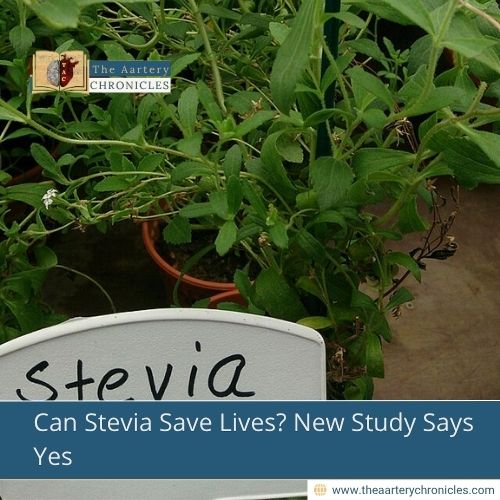

Can Stevia Save Lives? New Study Says Yes
New research reveals that a popular natural sweetener, when fermented, may selectively target pancreatic cancer cells without harming healthy tissue.
Pancreatic cancer remains among the deadliest malignancies worldwide, characterised by late diagnosis, rapid progression, and resistance to conventional therapies. However, a recent breakthrough study has identified a novel anticancer potential in stevia, commonly used as a sugar alternative, once it undergoes microbial fermentation.
Published in the International Journal of Molecular Sciences, this promising research points to a new direction in natural product-based cancer therapeutics.
Why Pancreatic Cancer Needs New Solutions
Pancreatic cancer is one of the toughest cancers to treat. It grows quickly, spreads early, and often doesn’t respond well to common treatments like surgery, chemotherapy, or radiation. Dr. Narandalai Danshiitsoodol from Hiroshima University explains that these challenges make it especially difficult to manage. With fewer than 10% of patients surviving beyond five years, there’s a growing need to explore new treatment options, particularly those based on natural or plant-derived compounds.
The Role of Fermented Stevia in Cancer Cell Suppression
While stevia is widely recognised for its non-caloric sweetening properties, the study found that fermentation of stevia leaves significantly enhances their bioactivity.
Researchers used the bacterial strain Lactobacillus plantarum SN13T, originally isolated from banana leaves, to ferment stevia under controlled conditions:
- Duration: 72 hours
- Temperature: 37°C
- Environment: Anaerobic (no oxygen)
The result was a biologically potent extract known as Fermented Stevia Leaf Extract (FSLE), which was tested on pancreatic cancer cells.
Key Findings
Compared to unfermented stevia, FSLE demonstrated:
- Enhanced cytotoxicity against pancreatic cancer cells
- Minimal impact on healthy kidney cells (even at higher doses)
- Stronger antioxidant activity, with up to 94% free radical scavenging capacity
Notably, FSLE did not indiscriminately kill cells. In many cases, it slowed cancer cell growth and induced morphological signs of cellular stress or dysfunction, suggesting a regulatory rather than aggressive mechanism.
Unlocking Potency Through Biotransformation
The study underscores the impact of microbial biotransformation, a process where microbes metabolise plant compounds into more pharmacologically active derivatives. One major transformation identified was the conversion of chlorogenic acid into chlorogenic acid methyl ester (CAME).
CAME proved significantly more potent than its precursor:
- Lower IC50 values (i.e., required smaller doses to reduce cell viability by 50%)
- Triggered apoptosis through well-defined molecular pathways
- Modulated gene expression, upregulating pro-apoptotic markers and downregulating anti-apoptotic genes
According to co-author Dr. Masanori Sugiyama, “Microbial fermentation can substantially improve the pharmacological efficacy of natural plant extracts, offering a strategy for developing selective anticancer agents.”
Implications and the Path Forward
This discovery opens the door for fermented stevia extracts to be explored as complementary or standalone options in cancer therapy. The team now plans to conduct preclinical animal studies to assess how FSLE behaves in complex biological systems, where factors like immune response and metabolic processing play a major role.
Furthermore, the study provides a valuable model for using probiotic strains in the functional enhancement of herbal extracts, aligning with the broader movement toward integrative and plant-based cancer therapies
Stevia’s Expanding Therapeutic Potential
Stevia (Stevia rebaudiana) has long been valued for its sweetness without calories, attributed to its steviol glycosides. Yet this study positions stevia in a new light as a raw material that, when processed through microbial fermentation, can be converted into a targeted, low-toxicity anticancer agent.
“This microbial transformation was likely due to specific enzymes present in the SN13T strain,” noted Dr. Danshiitsoodol. Such findings suggest that the synergy between natural compounds and microbial biotechnology could yield safer and more effective treatment options for difficult cancers like pancreatic adenocarcinoma.
Conclusion
The fermented form of stevia, enriched through specific probiotic fermentation, shows great potential as a selective and natural anticancer agent. While further research is needed, including animal and clinical studies, this work paves the way for novel therapeutic uses of common natural substances, transforming them from everyday dietary components into powerful medical tools.
Source: Inputs from various media Sources

Priya Bairagi
Reviewed by Dr Aarti Nehra (MBBS, MMST)
I’m a pharmacist with a strong background in health sciences. I hold a BSc from Delhi University and a pharmacy degree from PDM University. I write articles and daily health news while interviewing doctors to bring you the latest insights. In my free time, you’ll find me at the gym or lost in a sci-fi novel.








